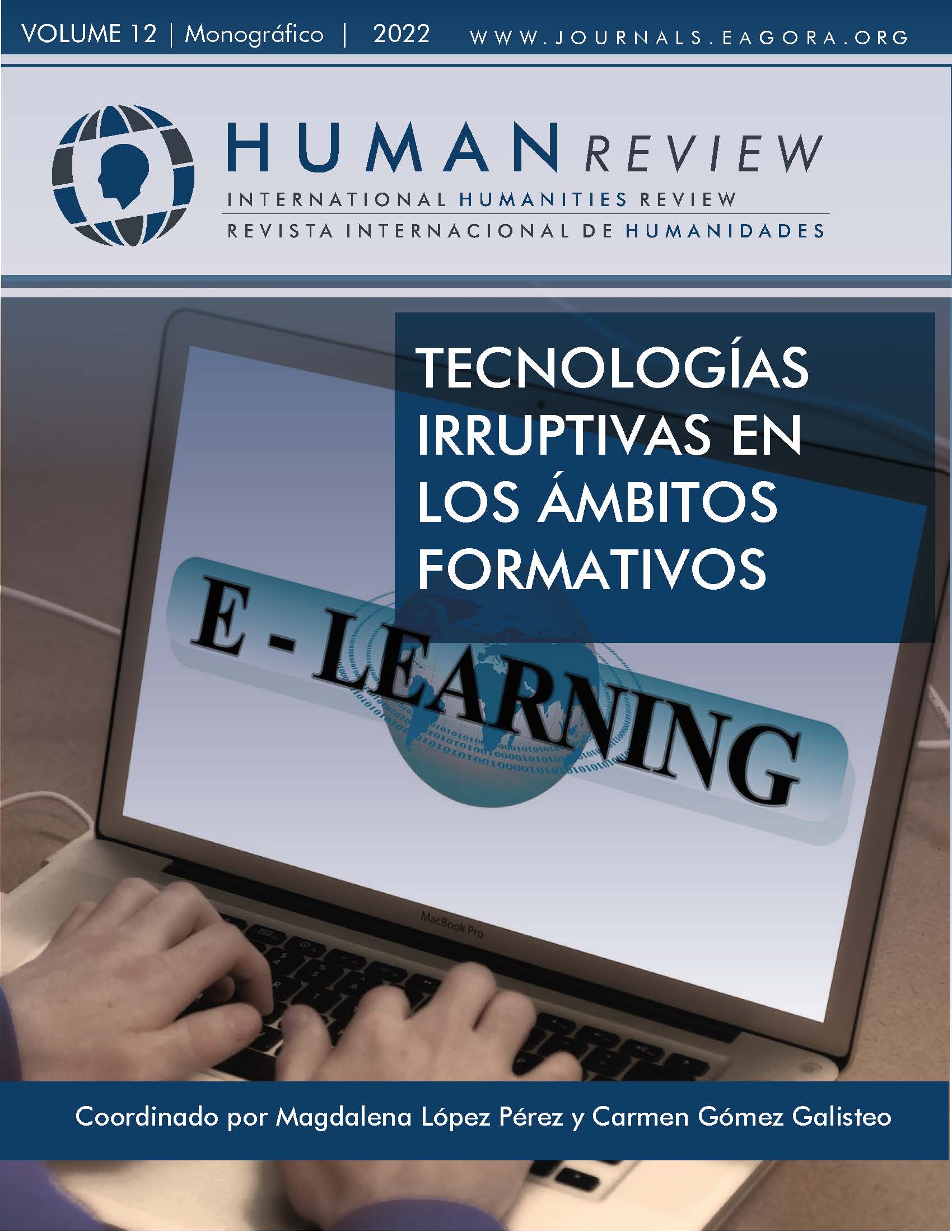Escape Room: An active methodology for postgraduate teaching
DOI:
https://doi.org/10.37467/revhuman.v11.3972Keywords:
Postgraduate Teaching, Gamification, Escape Rooms, Master Special Education, Mixed LearningAbstract
Given the lack or decrease in the motivation of university students, teaching and with it the University finds itself in the position of putting into practice new, more active and motivating methodologies that allow students to have a more protagonist role in the teaching process and learning than they have had so far.
This article presents an experience that consists of the design of an online Escape room framed in the Master in Special Education. The objective is to motivate students and facilitate learning of the subject.
References
Adams, V., Burger, S., Crawford, K., & Setter, R. (2018). Can you escape? Creating an escape room to facilitate active learning. Journal for Nurses in Professional Development, 34(2), E1-E5. https://doi.org/10.1097/nnd.0000000000000433.
Eppmann, R., Bekk, M., & Klein, K. (2018). Gameful experience in gamification: construction and validation of a gameful experience scale [GAMEX]. Journal of Interactive Marketing, Elsevier, 43, 98-115. https://doi.org/10.1016/j.intmar.2018.03.002.
Gómez, M. (2020). A COVID-19 intervention: using digital escape rooms to provide professional development to alternative certification educators. Journal of Technology and Teacher Education, 28(2), 425-432.
Jabbar, A. I. A., & Felicia, P. (2015). Gameplay Engagement and Learning in Game-Based Learning
A Systematic Review. Review of Educational Research, 85(4), 740-779. https://doi.org/10.3102/0034654315577210.
Jambhekar, K., Pahls, R. P., & Deloney, L. A. (2020). Benefits of an escape room as a novel educational activity for radiology residents. Academic Radiology, 27(2), 276-283. https://doi.org/10.1016/j.acra.2019.04.021.
Ke, F. (2014). An implementation of design-based learning through creating educational computer games: A case study on mathematics learning during design and computing. Computers & Education, 73, 26-39. https://doi.org/10.1016/j.compedu.2013.12.010.
López-Pernas, S., Gordillo, A., Barra, E., & Quemada, J. (2019). Examining the use of an educational escape room for teaching programming in a higher education setting. IEEE Access, 7, 31723-31737.
Moreno-Fuentes, E. (2019). El «Breakout EDU» como herramienta clave para la gamificación en la formación inicial de maestros/as. Revista Electrónica de Tecnología Educativa, 67. https://doi.org/10.21556/edutec.2018.66.1247.
Onecha, B., Sanz, J., & López, D. (2019). Los límites de la ludificación en la enseñanza de la arquitectura. La técnica del Escape Room. Zarch: Journal of Interdisciplinary Studies in Architecture and Urbansim, 12, 122-133. https://doi.org/10.26754/ojs_zarch/zarch.2019123549.
Pérez-Manzano, A., & Almela-Baeza, J. (2018). Gamificación transmedia para la divulgación científica y el fomento de vocaciones procientíficas en adolescentes. Comunicar, 26(55), 93-103. https://doi.org/10.3916/C55-2018-09.
Romiszowski, A. (2003). The future of E-learning as an educational innovation: Factors influencing project success and failure. Revista Brasileira de Aprendizagem Aberta e a Distância, 2(1), 1-14. http://dx.doi.org/10.17143/rbaad.v2i0.
Wiemker, M., Elumir, E., & Clare, A. (2015). Escape room games, “Can you transform an unpleasant situation into a pleasant one? Game Based Learning, En J. Haag, J. Weißenböck, W. Gruber, & C. F. Freisleben-Teutscher (Eds.), Game Based Learning – Dialogorientierung & Spielerisches Lernen Digital and Analog (pp. 55-68). St. Pölten https://bit.ly/2JBYpQo.
Downloads
Published
How to Cite
Issue
Section
License
Those authors who publish in this journal accept the following terms:
- Authors will keep the moral right of the work and they will transfer the commercial rights.
- After 1 year from publication, the work shall thereafter be open access online on our website, but will retain copyright.
- In the event that the authors wish to assign an Creative Commons (CC) license, they may request it by writing to publishing@eagora.org









